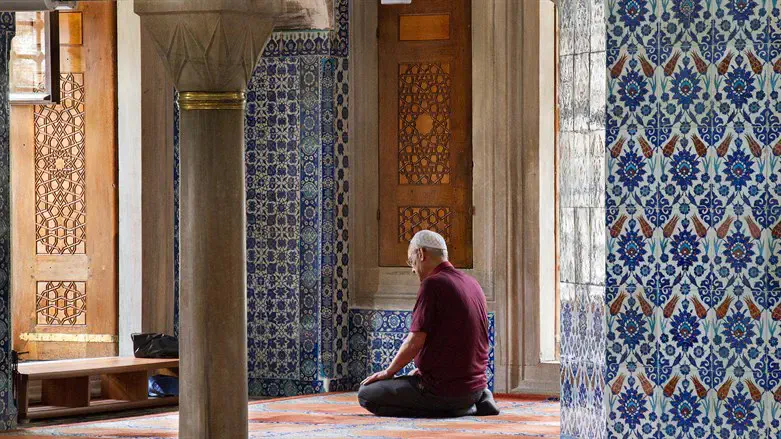
In order to try to understand the complexity of the position towards Ramadan as a holy Muslim month, and as a source of extremism and terrorism, Arutz Sheva – Israel National News spoke with Dr. Nesia Shemer, an expert on Islam from the Department of Middle Eastern Studies at Bar-Ilan University.
"If you look at the sources of Islam, the Quran and the Hadith, Ramadan is considered the month of forgiveness and mercy, just like Elul in Judaism," she explained. "Believers are commanded to fast and pray extensively. They hold long and special prayers through the night. Many are commanded to give charity for the needy and engage in Quran studies, because this is a month abundant with mercy. If the god is far away all year long, during Ramadan he is close, just like we say in Judaism, 'the king is in the field.’ Allah says, 'If my servants ask you about me, tell them that I am close to them; that I will respond to the call of those who call me.’ These are the words that the Quran uses to describe the month of Ramadan."
On the other hand, Dr. Shemer said, "We expect a number of attacks. The fundamentalist movements take advantage of this month and turn it into a month of jihad, partially because the first battle that the Muslims won was the Battle of Badr in 624. This was a heroic victory of the weak against the strong, few against many. Because of this battle and a long list many other battles that took place during Ramadan, such as the conquest of Mecca, Ain Jalut and more, Ramadan holds an additional virtue, that if Allah is close to the believers, he also helps them defeat their enemies."
On a personal level, this means that the Muslim believer must put effort on the commandments of hospitality, charity and prayer, but on a national level, the war of jihad becomes prominent and "this requires the security forces to be alert in the face of many warnings, as we heard about the thwarting of a huge attack yesterday. But we must also distinguish between the different sectors, because Hamas' motivation for incitement is evident on social media. They doesn't need reasons, but now they are taking advantage of the fact that the Palestinians can't go to Al-Aqsa like they do every year. On the other hand, if you look at the Arab public in Israel, you see a growing desire to keep the situation quiet and calm. No one wants an explosion."
There are several reasons for this trend: "Part of the situation is the very strong enforcement that has existed since the outbreak of the war, but there is also another side to this, which is that the Arab society was also harmed by Hamas on October 7th. We saw Ali Alizadeh, a Muslim whose four family members were kidnapped by Hamas, two under the age of 18 were released, and his son and grandson are still being held captive by Hamas. We saw him arguing with the Palestinian ambassador to the UN about how both of them fast on the Ramadan, but Hamas is holding Muslims captive. This is something new from the standpoint of Arab society in Israel, which is not part of the Muslim unity and flaring up of the sector, that Hamas tried to cause here. They are not interested in this. Polls show that the notion of a shared destiny between the Arab and Jewish sectors has increased since October 7."
So what should we expect this Friday, the first Friday of Ramadan? Shemer believes that "there are indeed warnings about the first Friday, which is a day prone to disaster. I see on social media how Hamas is trying to incite the public and get the youth out on the streets in East Jerusalem. This is the population that can enter Al-Aqsa freely. Al Jazeera is also trying to heat things up, and we must be ready."